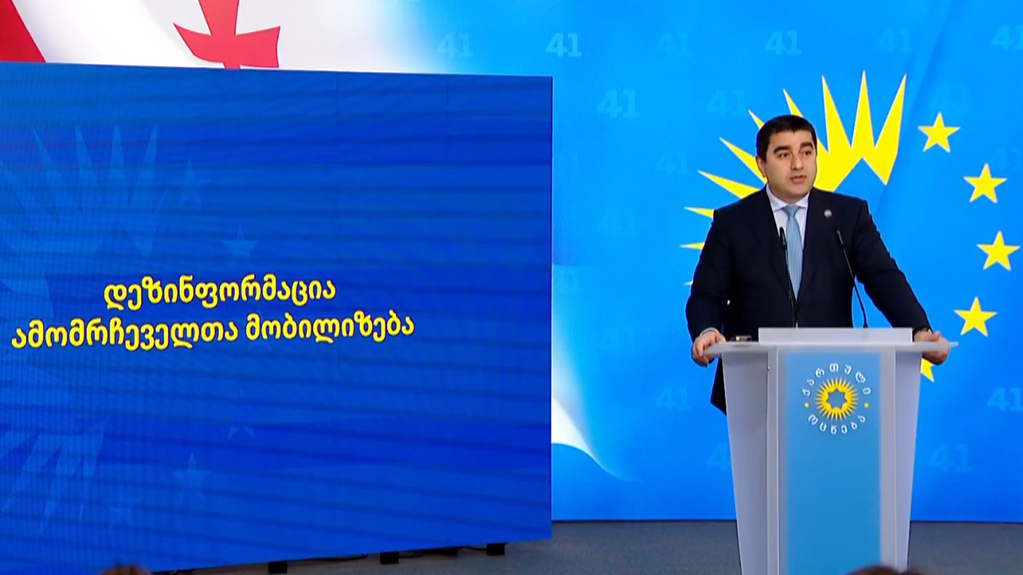The Speaker of the Parliament of Georgia, Shalva Papuashvili, denies that organizing call centers for elections is a mechanism for influencing the will of voters, asserting that it is part of party work. According to Papuashvili, this primarily involves understanding your voters and ensuring that they come to the polls.
News
"At the end, Mr. Khazaradze and the rest of the opposition remain the hope of TV Pirveli. They discovered that the parties are in touch with their voters; they communicate with them and mobilize them. Among them, this has already taken on a fascist character on social networks. The former Public Defender is disseminating personal information in a context that directly marks individuals as targets for attack. She is distributing lists that include our coordinators responsible for contacting voters. She has removed personal numbers from one of the lists - apparently unaware that names and surnames are also personal information. The former Public Defender currently represents a non-governmental organization that is financed by the EU budget. Therefore, when such fascist campaigns are made possible through EU funding, it becomes the EU's responsibility,” Papuashvili stated at a briefing today.
According to the leader of the Georgian Dream, call centers are an internationally recognized method, and the National Democratic Institute (NDI) and the International Republican Institute (IRI) have conducted training in this regard.
“Well, what is the need for a party, party work, and structure? The Georgian Dream has more than 41 000 party members alone. This is part of the job: to know your voters and maintain contact with them.
We operate in accordance with the best international practices and standards established in party work. We know our voters; we have a connection with them. The main task of the party on election day is to ensure that our voters do not stay at home. When we were saying 'All and Sundry,' why were we do all this?!
We go door to door to get to know them, ensure they support us, and ask if they are going to the polls. Then, on election day, we maintain contact with everyone to ensure that no one stays at home. We were supported by 1.12 million people, and this, of course, requires an appropriate party infrastructure to connect not with everyone, but with the majority of them,” Papuashvili noted.
The ruling party exercised total control and pressure on voters on election day. In addition to coordinators mobilized at polling stations, voters’ attendance was monitored from specially arranged call centers. Based on information obtained by Georgian News, voters employed in municipal budget departments, whose personal numbers and those of their family members were delivered to city halls or polling stations 2-3 weeks before the elections, were required to call the call center after leaving the polling station and inform them that they had participated in the elections and cast their votes. The majority of these voters were given a phone number the day before the elections, which they were required to call after leaving the polling station.
As per a special report prepared on this topic by the TV company Pirveli, each call center had four people working, headed by a so-called Captain. According to Pirveli, the rank of Captain was held by individuals who were tasked with pressuring voters to vote for the Georgian Dream and then submitting a report to the party confirming that they had completed their tasks.















